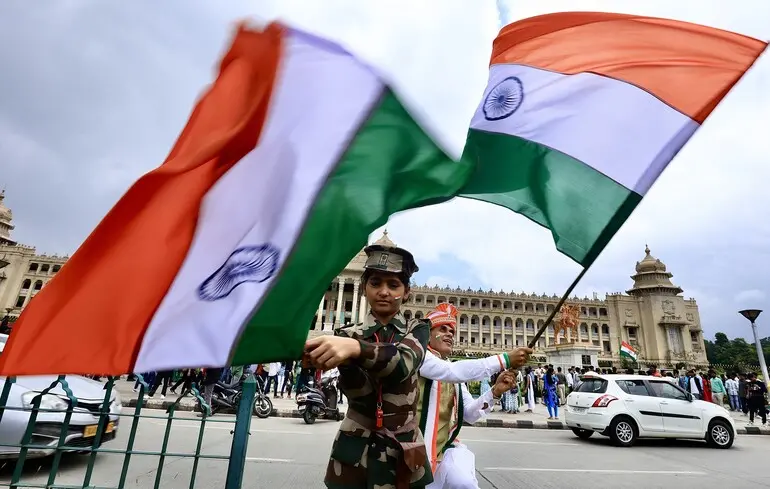India Caught in Trade Tariffs: How US Sanctions Reshape Its Strategic Path

Amid the ongoing global economic turbulence and geopolitical tensions, India’s economic landscape is undergoing significant shifts driven by new tariffs imposed by the United States.
On August 27, the US administration doubled tariffs on Indian goods to 50%, marking a substantial escalation in the growing friction between the two largest democracies worldwide and affecting their strategic relationship.
Despite India leveraging its strategic position to increase imports of discounted Russian oil following the outbreak of the Ukrainian war, new US tariffs threaten to nullify these gains.
Studies estimate that India boosted its imports of Russian oil to at least $17 billion since early 2022, a vital economic lifeline.
However, data from the Global Trade Research Initiative (GTRI) in New Delhi suggests that these additional tariffs could reduce Indian exports by more than 40%, or nearly $37 billion, over just three months of the current fiscal year.
This presents real challenges for Prime Minister Narendra Modi, who faces the potential loss of thousands of jobs in key sectors such as textiles, precious stones, and jewelry.
Meanwhile, the Ukraine conflict and fluctuating oil prices further influence India’s trade and energy relations, prompting a possible reassessment of its long-term partnership with Russia and a strategic pivot towards increased cooperation with the US to balance regional interests.
Hoppim Jacob, founder of the Delhi Strategic and Defense Studies Council, emphasizes that Russia remains an indispensable partner—providing affordable oil, military technology, and diplomatic support on critical issues.
Despite strains in US-India relations during Trump’s presidency, the US continues to be India’s primary strategic ally, and the country currently cannot afford to choose between the two.
Indian government sources reveal a desire to restore ties with Washington and expand US energy imports, while maintaining some trade with Russia.
The Foreign Minister confirmed ongoing talks on trade, energy security, nuclear cooperation, and intelligence sharing.
Simultaneously, international analysts warn that EU sanctions targeting Russia will leave oil out of immediate scope, but Russian oil already accounts for nearly 40% of India’s total imports.
Experts predict that an immediate halt in Russian oil purchases, which amount to about 2 million barrels daily, could push global oil prices above $200 per barrel, creating economic turmoil for a country that is the world’s third-largest oil consumer and importer.
Discontinuing these imports could destabilize the supply chain and cause drastic internal fuel price hikes.
Experts argue that recent US actions have strained India-US relations to perhaps their worst point since the sanctions over India’s 1998 nuclear testing.
The dispute could spill over into other sectors, such as tech visas and offshoring services, affecting India’s economic interests.
Even if India manages to negotiate some tariff reductions, lasting repercussions in trade and diplomatic ties are likely to remain.

